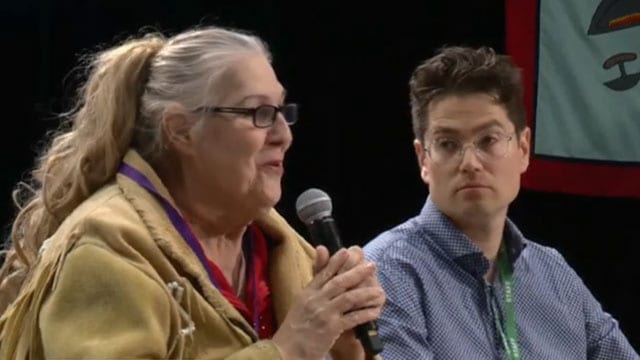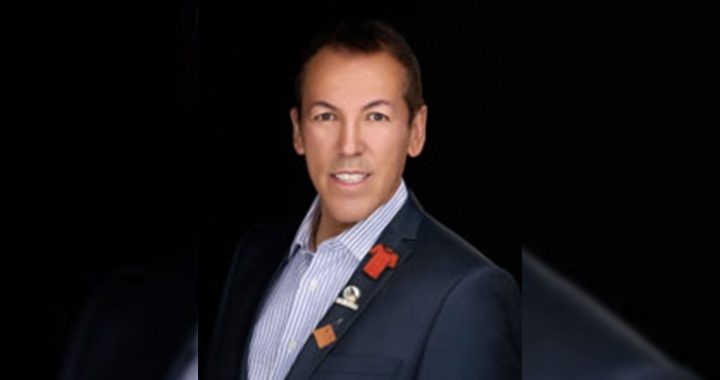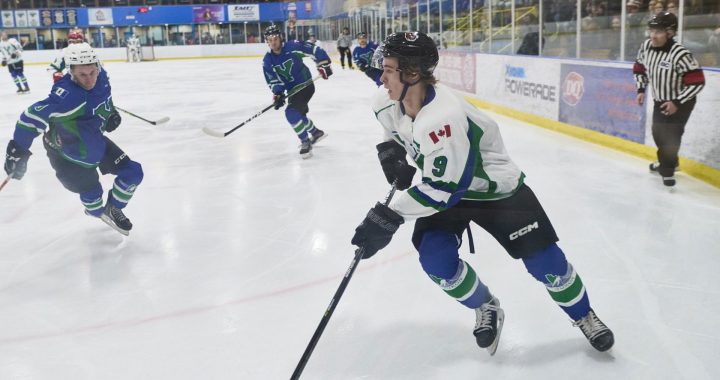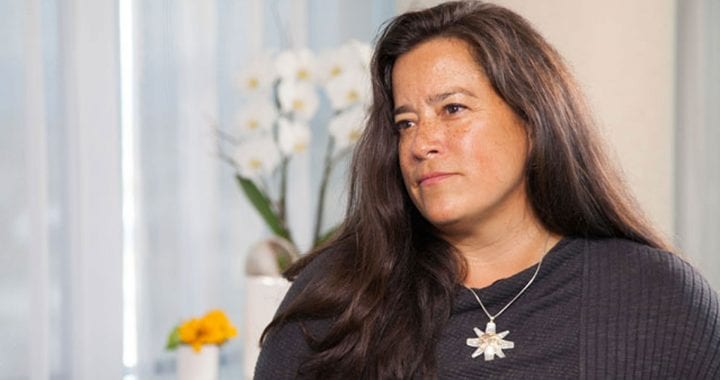
(Lawyer Breen Ouellette, right, listens to a witness during a hearing of the National Inquiry into Missing and Murdered Indigenous Women and Girls)
Breen Ouellette was more than a little confused when he received an email from a lawyer claiming to work for the National Inquiry into Missing and Murdered Indigenous Women and Girls.
Confused because Ouellette, a Metis lawyer who had just quit his position with the inquiry, had never heard of him.
“Hello Mr. Ouellette,” the email begins from Steve Kelliher. “Would you consider having a confidential chat with me in respect to your recent resignation. I am involved in the Forensic Document Review Project and would very much appreciate whatever insights you felt comfortable to share.”
Ouellette said he not only had no idea who Kelliher was, but didn’t know why he would be contacting him.
“This immediately raised my defences because I can’t know what he knows,” Ouellette said.
APTN News reached out to Kelliher to ask why he was trying to contact Ouellette.
“You will know about solicitor-client privilege. It includes whether a lawyer acts for someone,” Kelliher wrote in an email to APTN. “If I answered your question I could be disbarred. So you will understand my reluctance in doing so.”
Both the inquiry, and later Kelliher, confirmed that he is a lawyer at the national inquiry.
Kelliher is based in Vancouver. According to his email to Ouellette, he works with the forensic panel review at the inquiry.
“So I don’t know if he has the same set of confidential information that I have and it could be a set up,” Ouellette said. “It could be the national inquiry trying to get me to talk to someone who appears and then ‘gotcha’ – we gotcha in the act you’ve breached your professional duties.”
Ouellette turned to the inquiry to ask permission to speak.
“Has anyone working for the national inquiry been authorized to speak to me?” he asked the inquiry Executive Director Jennifer Rattray.
“And I received a cease and desist letter by noon,” he said.
APTN asked the inquiry whether Kelliher was asking Ouellette to speak on behalf of the inquiry.
“Any communication that Mr. Kelliher may have made was not in his official capacity nor on behalf of the National Inquiry,” wrote inquiry spokesperson Nadine Gros-Louis.
Ouellette was hired by the inquiry in September 2017 – but because of a slow security clearance process, didn’t start until April.
He quit the inquiry on July 3.
He told APTN that it wasn’t the subject matter or long hours that pushed him to resign.
It was a “serious loss of confidence” in leadership – both at the top of the inquiry and with federal officials in charge.
“It’s speeding towards failure,” said Ouellette.
“The subpoena issue is a major issue with me.”
Ouellette has more questions than answers about how the commissioners run the inquiry, and about what he calls federal interference.
He said he cannot discuss his concerns in detail because he has not received clearance from the inquiry.
But one point in particular seems to be of interest.
The inquiry has the ability to subpoena a witness or document – but there is something about the way commissioners are handling this that is bothering the lawyer from Saskatchewan.
And the fact that Crown-Indigenous Relations Minister Carolyn Bennett raised it is only heightening his sense that the feds are meddling in the inquiry.
“The federal government is one of the parties with standing before the national inquiry,” said Ouellette. “And the federal government’s departments and police service, the RCMP, and other departments are under the scrutiny and investigation of the national inquiry and the national inquiry is empowered to make findings of misconduct against any of those parties if it deems it’s within the scope of the mandate – so you have to ask yourself – do the other parties with standing, looking at the relationship of the minister speaking about the subpoena process do they perceive any bias?
“It’s extremely curious that she would raise the specific issue of subpoenas if she had no intimate knowledge of the inner-workings of the national inquiry if she’s actually working at arms length from it.”
Ouellette is not shy about sharing his opinions about how the inquiry has been handled.
He believes that the federal government should have granted the inquiry a two-year extension – but fired the current list of commissioners.
He also believes he should be allowed to speak freely about issues he has with the inquiry and the federal government.
“The foundations of the national inquiry are the commissioners, its mandate and its budget,” he said. “And if the commissioners are acting in a way that’s not consistent with the mandate and the budget… only the legal team are going to have any knowledge that its occurring,” said Ouellette.
“So if the legal team is making what I consider a mistake, and they’re considering the commissioners to be the client, and they’re ignoring the mandate, and they’re ignoring the budget as foundational components then I don’t think the interests of justice are served. I believe the duty of loyalty to the national inquiry should guide whether or not lawyers can speak out.”
Ouellette is the sixth lawyer to resign from the inquiry but the first to issue a news release about his departure.
His exit brings the total number of people that have quit or been fired to 24.
-with files from Kathleen Martens











The National Inquiry was just a cruel joke for the families of the Missing and Murdered Indigenous Women and Girls. It brought false HOPE to my family, that was desperately needed. Just for NOTHING to be resolved!!!!
It isn’t even finished yet.
The National Inquiry was just a cruel joke for the families of the Missing and Murdered Indigenous Women and Girls. It brought false HOPE to my family, that was desperately needed. Just for NOTHING to be resolved!!!!
It isn’t even finished yet.